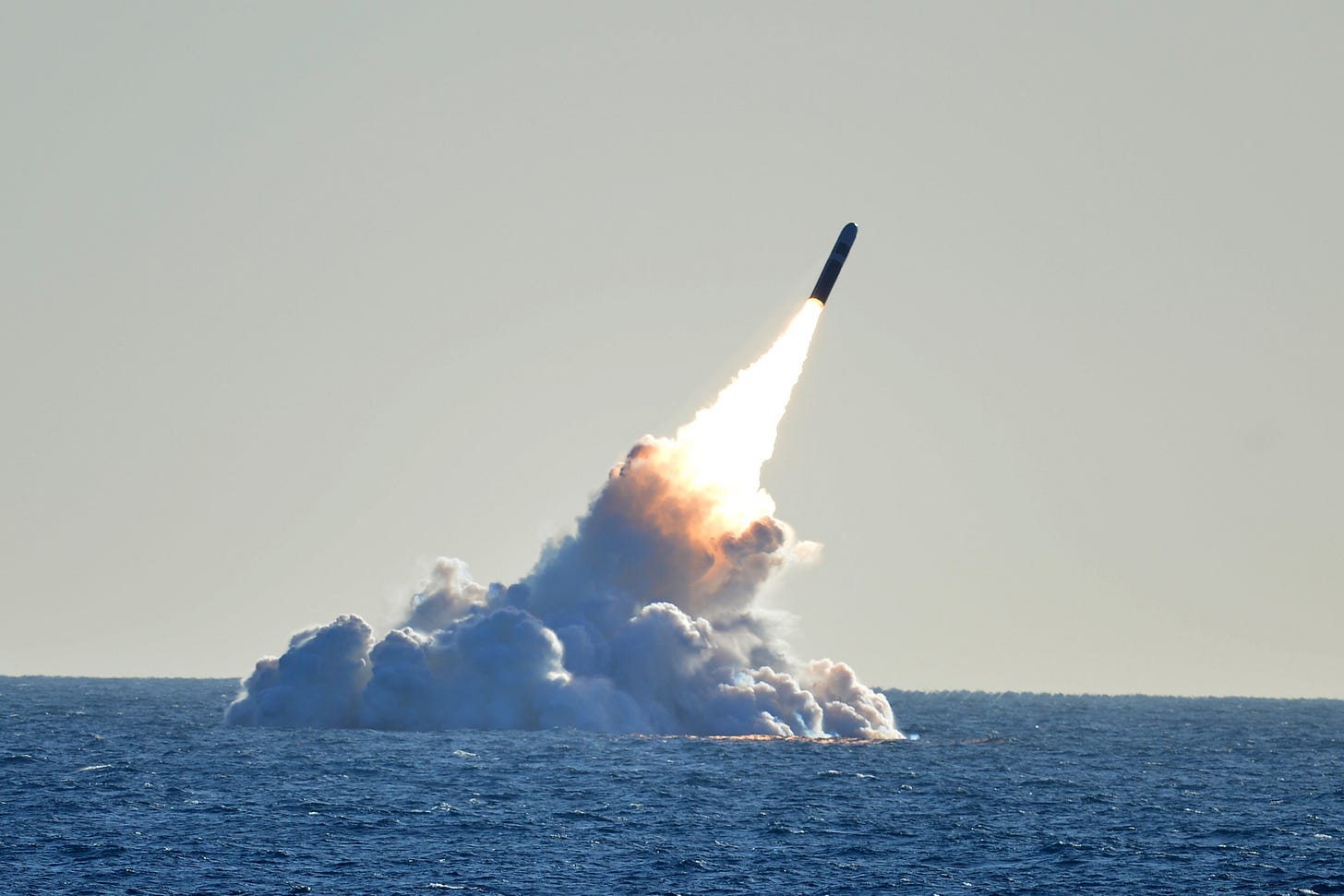The Russian invasion of Ukraine has made nuclear conflict more likely than almost any other time in the last three decades.
It’s only been a week since the war began, and already the potential for an escalated conflict that leads to nuclear powered states at war with one another has been floated on numerous occasions. Russia has declared itself in a state of nuclear readiness, further inflaming the situation.
The conflict “naturally ties into nukes when you are talking about the possibility of Russia and NATO in such close proximity,” Alex Wellerstein, Associate Professor and Director of Science and Technology Studies at the Stevens Institute of Technology in Hoboken, New Jersey, told me.
According to Wellerstein, the Russian tactic so far has been to push the envelope in a game of brinksmanship aimed at expanding the parameters of what’s allowed with the nuclear threat as a backstop.
Thank you for your support. Please consider a paid annual subscription today.
Jessica Sleight, a Junior Partner for Strategy and Policy at nuclear disarmament group Global Zero, told me that the current crisis proves that Mutually Assured Destruction and other claims of the stabilizing effect of nukes are misguided at best. Instead of forcing everyone to keep their cool, nuclear risk itself has been weaponized by Russian President Vladimir Putin.
“As the war in Ukraine has proven more difficult for Russia and as the international community condemns the Russian government and puts unprecedented pressure on Russia through sanctions and military aid to Ukraine,” Sleight said, “Putin has leaned more into nuclear threats and increased the risk of nuclear use by miscalculation or unintended escalation.”
Despite the back and forth between Russia and the West over the war and the broader conflict that’s been raging for decades since the USSR fell, there have been indications that there’s a possibility for de escalation rather than escalation. But the entrenched positions of both sides, and the rapidly deteriorating condition of the diplomatic situation, raise questions as to whether or not any “off ramp” will be provided for Russia so that they can withdraw and save face.
Without such an off ramp to hostilities, it’s hard to see the incentive for Putin and the Russian government to back down. And the West doesn’t seem inclined to accept anything less than total withdrawal and capitulation.

Sleight said the West needs to take the first step and “make it clear that nuclear weapons are off the table in Putin's war with Ukraine, and the US and NATO will not use nuclear weapons first should the conflict spillover to NATO territory.”
“There are enough robust non-nuclear and non-military tools for the US, that they are implementing, to pressure Russia to the table,” Sleight said.
Sleight and Wellerstein join me today for a panel discussion on the war in Ukraine and the threat of nuclear weapons at 1pm EST. Join us live on the Callin app or listen in at the link.


A few clips
On Monday, I joined the JENerational Change podcast to discuss Ukraine and progressive politics in the US. It was a good chat, check it out here:
And on Tuesday afternoon I appeared on the Nomiki Show:
Plus, the latest from friend of the newsletter Jack Crosbie, still on the ground in Ukraine:

If you would like to support my work, please consider a paid subscription
Find me on Twitter and Facebook
Email me at eoinhiggins@gmail.com




